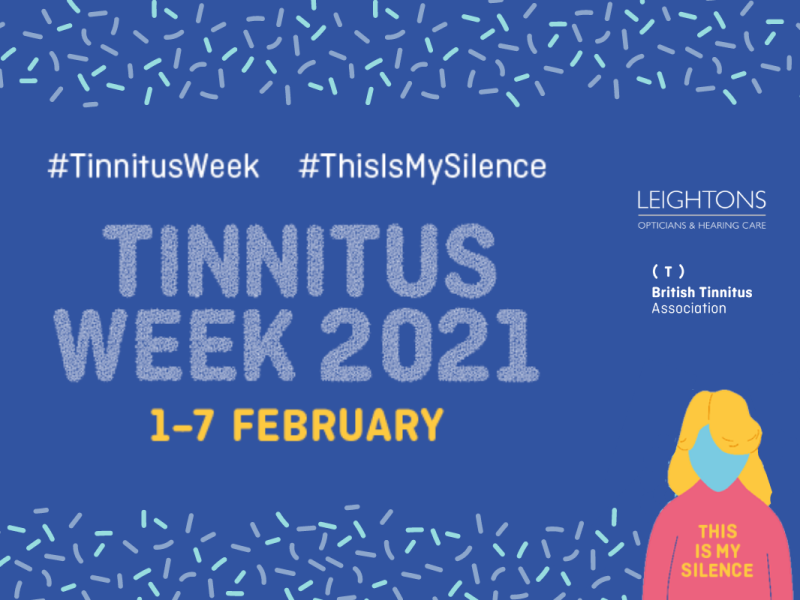Tinnitus Awareness Week: Don’t worry, you’re not alone
Feb 01, 2021 in Hearing Care

Around 6.5 million people in the UK and 700 million around the world have some form of tinnitus. Even children as young as ten have been reported suffering from the symptoms of tinnitus.
Why Tinnitus Awareness Week is so important
Because tinnitus – a word related to the Latin for ‘ringing’ – is a completely internal condition with no external symptoms, it can be both frustrating, isolating and can even lead to depression. That’s why the British Tinnitus Association created Tinnitus Awareness Week, which this year runs from the 1-7 February. This year’s event aims to remind tinnitus sufferers everywhere that they’re not alone, that they needn’t give in to isolation and loneliness.
To support Tinnitus Awareness Week, we’ve put together a quick-reference guide to the symptoms and causes of tinnitus, and the treatments available.
What is it like to experience tinnitus?
The symptoms of tinnitus are a ringing in the ears, rushing sound, clicking noise or other sounds that have no external source. Some people even experience sounds of music or humming.
If you’ve ever been to a very loud concert or nightclub and experienced a temporary ringing or rushing noise the next day or immediately after, then you know what it’s like to have tinnitus.
What are the causes of tinnitus?
There is no predictor for who will develop tinnitus – it can affect anyone. But avoiding loud noises can reduce the risk. Long-term exposure to excessively loud noises has been identified as a strong risk factor. Two-thirds of people with tinnitus also have hearing loss.
Loud noises (anything above 85 decibels like heavy traffic, lawnmower or a noisy restaurant) over sustained periods of time can damage the tiny hair cells in your ear, deep inside the cochlea. Unsurprisingly, many musicians have tinnitus, including Chris Martin, Phil Collins, and Eric Clapton.
Tinnitus can also be triggered by stress, certain medication, ear infections, injuries, neurological disorders, metabolic disorders (such as diabetes) and diseases like Ménière’s.
Tinnitus can be aggravated or even caused by a build-up of earwax in the ear canal. Clearing excess ear wax in your ears can help placate your tinnitus symptoms. We recommend having ear wax professionally removed (rather than using home methods) to clear your ears. All of our Leightons practices offer a quick and painless ear wax removal service.
How can you treat or manage your tinnitus?
Modern life is noisy, so it pays dividends to protect your hearing and follow the hearing protection advice from our audiologists. We should all carry a set of ear plugs to help cut the volume of potentially harmful everyday sounds that could lead to noise-induced hearing loss or tinnitus. Although there’s no cure for tinnitus, there are plenty of ways to manage it.
- Hearing aids can help; most new hearing aids, including Oticon More, have a tinnitus function that helps to reduce or manage the noise.
There’s also a number of therapies you can try:
- Cognitive Behavioural Therapy (CBT) focuses on mental control, helping you keep the negative feelings at bay and ultimately making tinnitus noises less noticeable.
- Alternatively, Sound Enrichment Therapy takes a similar approach to the hearing aid functions mentioned above. Repetitive natural sounds – the sound of gently lapping waves or rain quietly pattering on a roof – can help mask tinnitus sounds.
Don’t let tinnitus takeover your life
If you need advice on treatments for tinnitus, book a FREE Tinnitus Consultation with one of our audiologists.
Call our Dedicated Patient Support team to book an appointment on 0800 40 20 20 or book online. As a primary care provider, we are open during lockdown by appointment only.
Please do not visit any Leightons practice until you have made an appointment as you will not be able to enter. For more information on how we’re keeping you safe in practice, visit our Here To Help pages.

